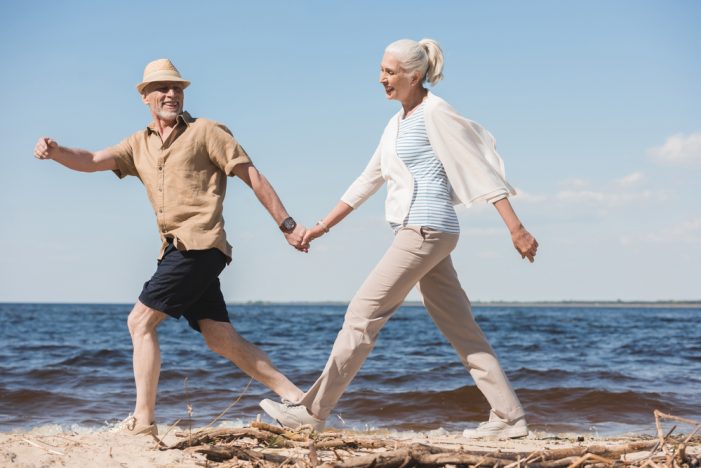Want to Live Longer? Walk Faster!
The older we get, the more we tend to pay attention to reports on how to live longer.
We are bombarded with reports on how to live longer and healthier by eating healthy. We are told to cut down on red meats, processed meats, refined and artificial sugars, unhealthy fats and BAD carbs – like bread, white potatoes, white rice, pasta, cookies, pies, etc. Some people take to the extreme by eating nothing but ‘rabbit food’. I’ve know a couple of them and in several instances, they ended up with more health problems because they weren’t getting the vital proteins and nutrients from the ‘rabbit food’ diet.
Through all of my studies and looking at so many popular diets, I have come to 2 major conclusions:
- Everyone’s body is different and what works for one doesn’t always work for all, so find what works for you.
- A balanced moderate diet is overall best, especially for controlling blood sugar levels. A good balanced diet that has worked for many, but not all, is about 60% GOOD carbs, 30% meat/poultry/fish and 10% healthy fats.
We are also told that we need to exercise on a regular basis if we want to live longer. Like diets, there are many different exercise programs and recommendations and like diets, some are better for some people while others work better for other people.
One major factor to exercising is the physical limitations or needs of older people, which is why we see numerous older folks out walking. Many seniors can’t afford to join a gym or purchase expensive exercise equipment like a treadmill or a Peloton. That’s why they walk.
I know many, walking may not be easy, but you have to give them credit for getting out there and trying anyway.
For years, we’ve heard that any kind of walking, even slow or moderate walking, is good exercise and will help extend one’s lifespan. Consequently, many seniors who are capable of walking more biskly, don’t, but they may change their mind after reading this:
A new study brings good news to walkers — and especially to those who favor a brisker pace in their strolls. The faster you walk, the more you may be prolonging your lifespan, the researchers have found.
It’s a known fact that walking can help to protect our health and prolong our lives.
Walking for as little as 2 hours per week brings down the risk of all-cause mortality.
This activity has also been linked with enhanced cognitive abilities and better psychological well-being.
But while most studies have only looked at the impact that walking as an activity can have on various aspects of health, or focused on how much time you should spend walking in order to enjoy the benefits, not much attention has been paid to how walking speed can impact long-term outcomes…
The team analyzed 11 population-based surveys conducted in the U.K. in 1994–2008, gathering data on 50,225 walkers…
Prof. Stamatakis and team’s analysis revealed that, while an “average” walking pace was linked with a 20 percent lower risk of mortality from all causes, walking at a “fast” pace was tied to a 24 percent lower risk.
When it came to specific life-shortening causes such as cardiovascular disease, the team found that brisk walkers has a 21 percent lower risk of associated mortality. For individuals walking at an average pace, this risk was reduced by 24 percent…
The researchers also noticed that older individuals, in particular, seemed to reap more benefits from walking at a brisker pace.
Participants aged 60 or over had a 46 percent lower risk of death related to cardiovascular diseases if they walked at an average pace, and a 53 percent lower risk if they walked fast…
So, seniors – if you can want to live longer and healthier, don’t just take a daily stroll, but spend some time walking briskly. The faster you walk, the more you increase your chances of living longer and healthier.









Recent Comments